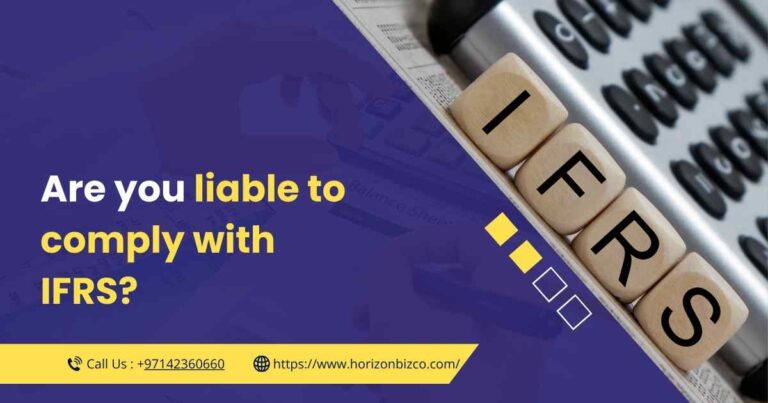International Financial Reporting Standards (IFRS) are a set of accounting rules that companies need to follow for preparing financial statements. Compliance with IFRS ensures consistency and transparency in financial reporting globally. However, not all companies are required to mandatorily adhere to IFRS.
This blog aims to help businesses understand their IFRS compliance obligations. We will discuss what IFRS are, scenarios that require compliance and best practices to ensure adherence. By the end, you will be able to assess your company’s reporting requirements under IFRS.
What are IFRS?
IFRS are issued by the International Accounting Standards Board (IASB) to standardize accounting practices worldwide. Currently over 168 countries require or allow IFRS reporting.
Some key IFRS include:
- IFRS 1 guides first-time adopters on transitioning from local standards to IFRS.
- IFRS 2 deals with accounting for equity-settled share-based payment transactions.
- IFRS 3 covers accounting for business combinations and goodwill measurement.
- IFRS 9 lays down rules for recognition and measurement of financial instruments.
Adopting IFRS makes financial statements more transparent and comparable. Investors can analyse company performance globally on an apples-to-apples basis.
To know more IFRS, Click here
Who needs IFRS compliance?
Not all companies are mandated to prepare IFRS-compliant financial statements. Applicability depends on factors like:
- Listing status – Public limited companies listed on exchanges requiring IFRS must use it.
- Country of incorporation – Many jurisdictions like the European Union mandate IFRS for large public interest entities.
- Ownership structure – Subsidiaries of multinational IFRS-using parents generally need IFRS reporting.
- Activity sector – Banks, insurance, and other sectors face regulatory IFRS compliance.
It is advisable for businesses to check jurisdiction rules or consult experts to clearly understand their IFRS obligations.
Various reporting scenarios
Depending on a company’s unique situation, IFRS compliance needs may differ:
- Publicly listed companies must mandatorily issue audited IFRS financial statements annually.
- Privately held firms below certain size limits can choose between IFRS and local GAAP standards.
- Subsidiaries incorporated abroad prepare two sets of financials – IFRS for parents and local GAAP for local regulators.
- Branch offices ordinarily follow head office accounting except for local tax and statutory compliances.
Proper evaluation of legal form, location, size and ownership helps determine applicable financial framework.
Consequences of non-compliance
Non-adherence to IFRS can attract adverse implications like:
- Regulatory penalties from watchdogs like fines or bans for misleading reporting.
- Loss of credibility with investors casting doubts over financial stability and performance claims.
- Difficulty raising capital as foreign banks and funds demand IFRS-compliant financial documents.
- Legal disputes in case of mergers, acquisitions or shareholder actions using incorrect accounting.
- Intervention by parent companies whose consolidated financials are disrupted due to non-IFRS subsidiaries.
Strict compliance ensures financial statements are reliable and do not undermine companies’ reputation.
Ensuring IFRS adherence
Some effective steps to guarantee continued IFRS compliance include:
- Appointing reputed external auditors familiar with IFRS nuances to audit annual financial statements.
- Engaging subject experts to remain updated on changing IFRS standards and transition requirements.
- Investing in regular internal IFRS training programs to build in-house accounting capabilities.
- Outsourcing specialized functions like complex disclosures, impairments etc. to specialist advisors.
Adopting robust IFRS compliance software and automation tools for efficient tracking and recording.
Following due processes through audits and expert oversight provides assurance of statutory adherence.
Outsourcing IFRS obligations
Many companies choose to outsource IFRS accounting needs to service providers like Horizon Biz Consultancy. Key benefits are:
- Relief from recruitment and long-term employment of dedicated IFRS resources.
- Access to global best practices through advisors having cross-industry IFRS exposure.
- On-demand resolution of technical queries without project delays from in-house learning curves.
- Economies of scale as IFRS costs are shared among a portfolio of clients benefiting all.
- Ensured compliance through consistent, process-driven accounting by experts.
Outsourcing non-core IFRS functions optimizes costs and mitigates reporting risks.
Conclusion
In summary, IFRS brings uniformity to financial statements globally. Businesses need to assess conditions affecting their applicability and ensure consistent adherence through auditor oversight and expert assistance. Outsourcing non-core IFRS tasks provides compliance security cost-effectively. Overall, following accounting quality standards enhances transparency for all stakeholders.
FAQs
While non-listed private companies are generally exempt, IFRS compliance may still be required if your country mandates it for large companies or your group parent follows IFRS for consolidated reporting. Check local regulations and discuss with advisors.
Most exchanges require audited annual financial statements using IFRS within 4 months after the reporting period ends on December 31. So the deadline would be April 30 of the following year for calendar year-end listed companies.
No, to allow consolidated reporting, a subsidiary must comply with the same framework as its parent. Most parents require IFRS compliance from foreign subsidiaries as well.
Yes, outsourcing specialized tasks does not remove the statutory audit requirement. Regular audits by independent auditors provide assurance of adherence to regulators and stakeholders.
Yes, as long as the financial statements are compiled according to IFRS, signed-off by management and audited, there is no issue in directly using an advisor’s IFRS reports for statutory filing purposes.






